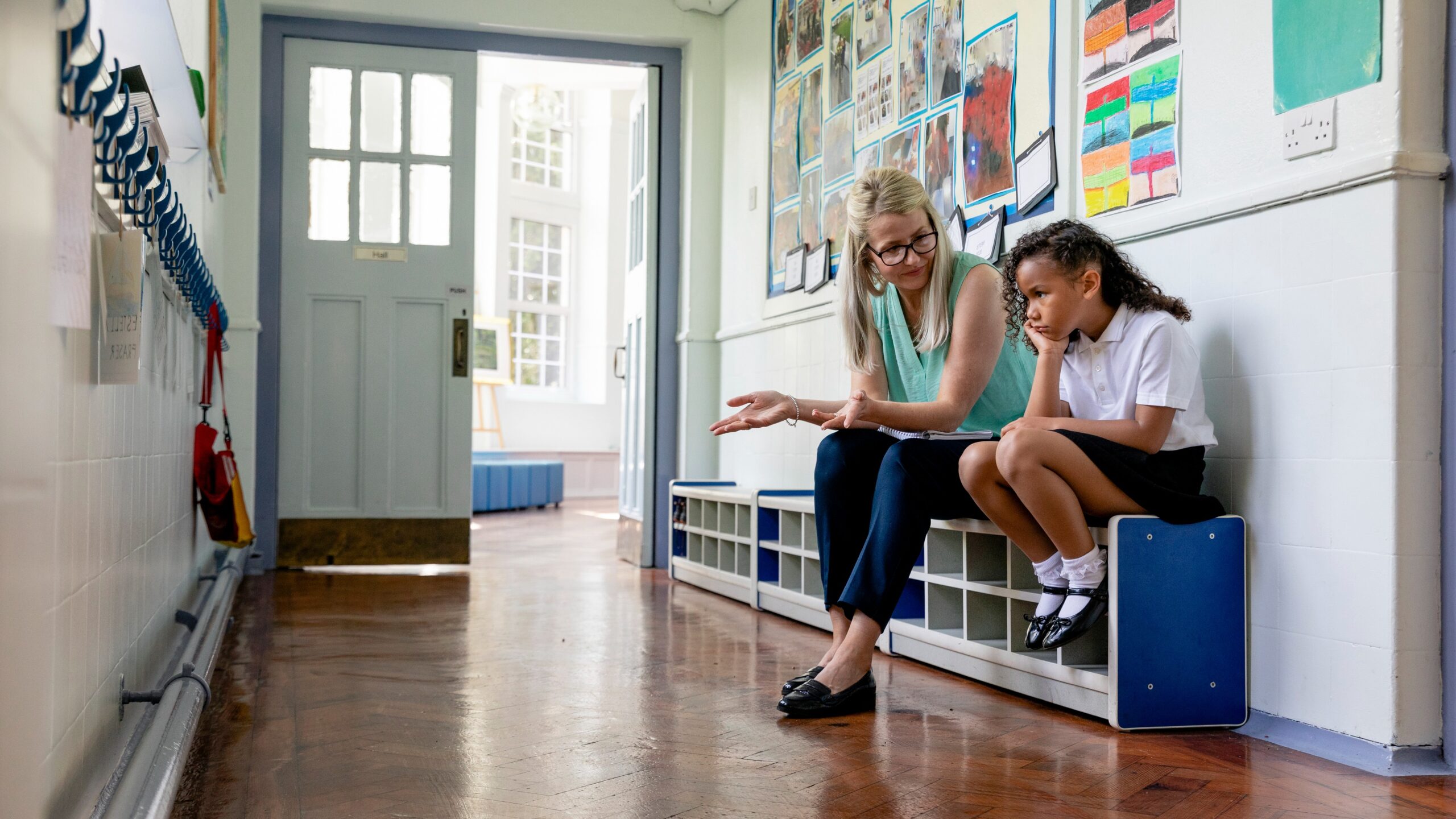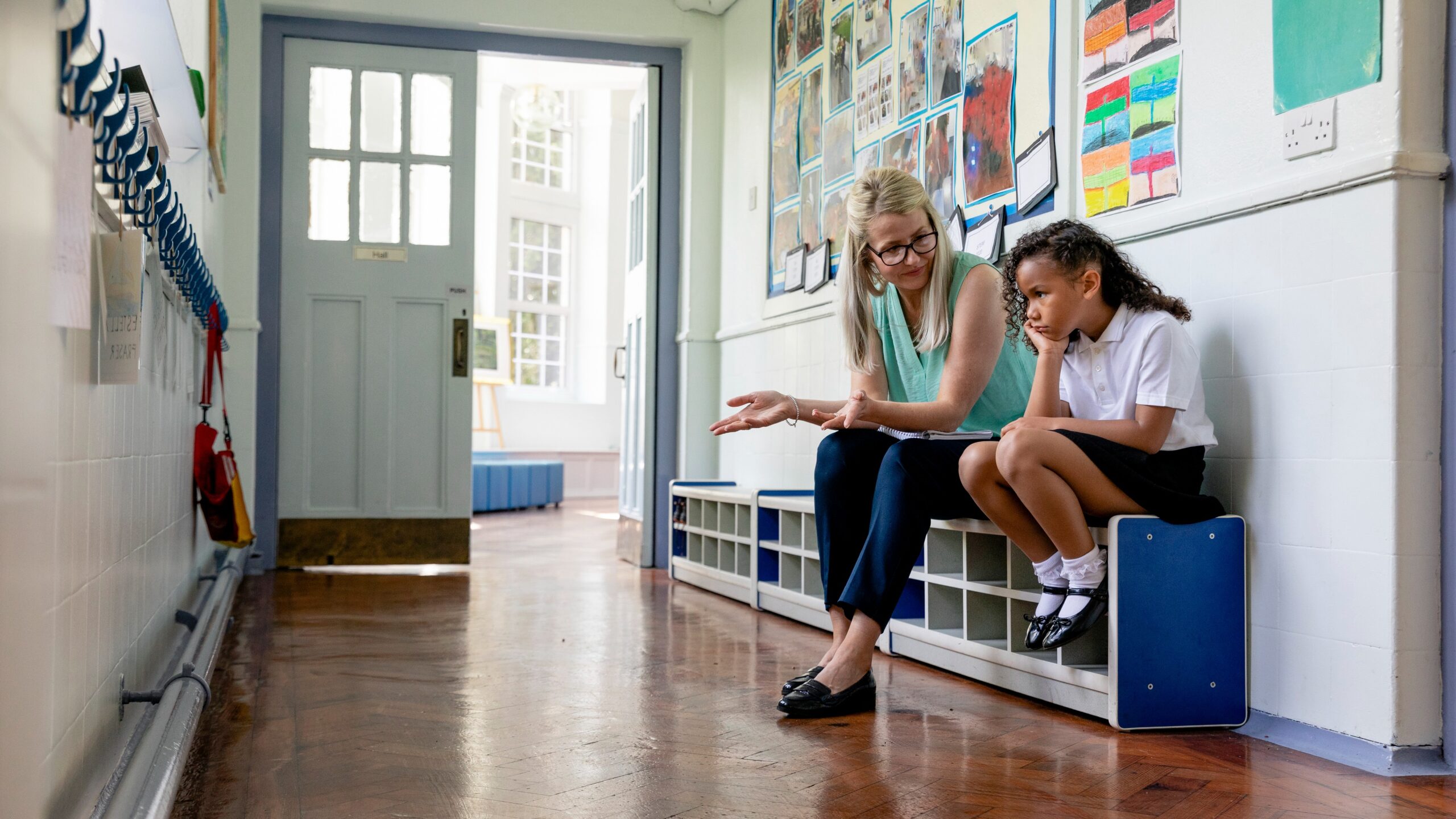
So, your child is a week or two into their school year and seems to be enjoying their new classmates and learning what atoms look like in solid, liquid, and gas form, but there seems to be one big thing still causing them some distress while at school: They don’t really like their teacher.
Your kid coming home one day and telling you that they don’t like their teacher is actually pretty normal. Similar to how they get annoyed or angry at you from time to time, there will be times in their life when they feel that same jumbled-up ball of frustrated feelings toward one of their teachers.
There are quite a few ways in which you can help your kid figure out these feelings toward their teacher and how to move forward in a positive manner. Let’s discuss.
Allow them to express their feelings fully, and listen to what they’re saying.

We all know how good it can feel to vent and get our feelings out sometimes. Even as a child, when you’re given the opportunity to just express yourself freely and fully verbalize what it is you’re feeling, that can often be enough to see yourself clearly through to letting go and moving on.
As you actively listen to the situation that’s making your child feel poorly toward their teacher, you can ask a few prodding questions as well, so you can understand the full scope of what actually took place from their side of things.

It’s important not to downplay anything or simply ignore what it is they’re telling you, because you want to create an open line of communication so they feel comfortable coming to you with their problems while they’re experiencing these vulnerable emotions.
Plus, your child’s teacher is someone that they spend a fair amount of their time with on a daily basis. Students don’t have to be best friends with their teachers by any means, but at the very least, you’d likely want your child and their teacher to have a respectful and considerate relationship with one another.
If the problem seems to be something reasonably insignificant in the grand scheme of things, or maybe your kid or the teacher was just having an off moment, you can help them put these feelings aside and venture into school the next day with an open heart and good attitude.
If the situation seems serious enough, arranging a one-on-one with the teacher can be helpful.

Once you fully assess the situation and find out whether it’s something inconsequential, like being told to stop chatting with their deskmate during a math lesson, or something more serious, like feeling picked on, you can decide how to move forward.
One thing that’s never a bad idea is to stay connected and open with your child’s teacher, because when something like this arises, you won’t feel weird about approaching them.

Depending on the situation that your child described, it’s important to go into the meeting with your kid’s teacher advocating for them while still remaining gracious and friendly. You might not have been given the full story of what actually happened, so keep an open mind and listen to their side of things.
You can use this opportunity to really feel out your child’s teacher and try to gauge whether or not there is a possible issue there. Most of the time, you’ll find that it was just a simple misunderstanding, and you can let the teacher know how your child was feeling about the situation that led to this meeting. Hopefully, they’ll be more understanding than defensive, and you can all move on in a pleasant manner.
Step back for a moment and see how things go. If there is no change, and your child is still in distress while in class, you can approach other people and resources at the school.

It’s always good to give a little time and space after a parent-teacher meeting to see how things evolve. Hopefully, once you’ve opened those lines of communication about how your kid was feeling to their teacher, there might be an adjustment period of slight awkwardness, but if they’re a caring professional, things should go smoothly.
More often than not, it won’t come to this, but on the off chance there is something bigger going on between your child and their teacher, it’s important to not get too stressed out about it and realize that you have other people you can talk to.

If your kid is coming home day after day feeling super anxious and stressed about having to spend time in class each day with their teacher and you’ve had your meeting or meetings with them, it’s likely time to talk to the principal.
Depending on how long your kid has been at the school or how long the principal has been employed there, you might already have some kind of relationship with them. Once you set your meeting with the principal, try to come from a place that’s collaborative and open while still advocating for your child’s right to a meaningful and prosperous education with a teacher they can coexist and learn from.

You can let them know that the issue at hand has been addressed with their teacher and you’re just not seeing any progress to alleviate the stress or hurt feelings. They might bring the teacher into the meeting or speak to them privately about things, but hopefully at this point, your concerns will be taken seriously and a plan will be set into motion.
If things don’t get any better from there, you might want to explore having your child moved to another class, as a last resort.







